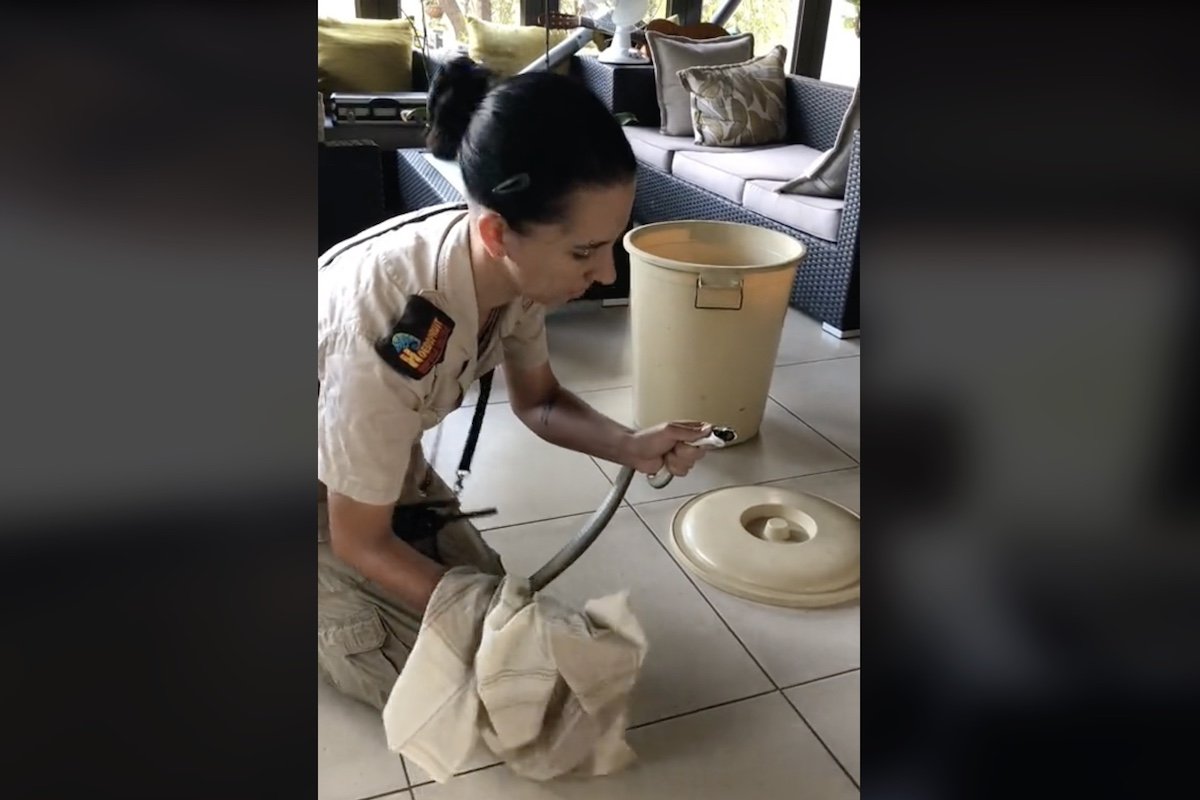
Arkansas Attorney General Tim Griffin is the top law enforcement officer in the state, and he is ultimately responsible for safeguarding the lives and civil rights of the more than 3.5 million Arkansans who call The Natural State home.
After the ATF shot and killed 53-year-old airport executive Bryan Malinowski in his home during a botched SWAT raid, Griffin had questions about the ATF’s use of force, which Malinowski’s family and most everyone else said was excessive. Griffin publicly called on ATF to release the videos from their bodycams, stating “information from a camera helps fill the vacuum of conspiracy and all this other stuff.”
“Look, this is bizarre that there’s just been silence. I understand there’s a state investigation going on with it, but there’s nothing about this footage that should stop it from being released,” Griffin told the local media.
However, a story published recently revealed that ATF agents wore no bodycams on March 19 during their fatal raid, and since then, Griffin – not unlike the ATF agents he called out for their lack of transparency – has gone silent about the killing. Now, Griffin lets his spokesman field questions about ATF’s raid.
The Second Amendment Foundation’s Investigative Journalism Project requested an interview with Griffin one week ago, but Griffin’s communication director, Jeff LeMaster, said this was not possible.
“The AG is not available for a phone or video-conference interview, but you are welcome to send us written questions that we will respond to,” LeMaster wrote in an email April 16.
Reluctantly, SAF sent Griffin 15 questions.
Elected officials prefer written questions far more than live interviews because they can order their staff to research the answers. LeMaster admitted as much, telling SAF last week that he sent the written questions to several lawyers within the Attorney General’s Office. Written questions also make it more difficult to pose follow-up questions – a vital part of any interview – and they allow public officials to pick and choose only the questions they are willing to address. Unfortunately, that’s exactly what the Attorney General’s Office did.
Here are the questions SAF sent to Arkansas Attorney General Tim Griffin and the answers LeMaster sent back, which he said are attributable to him, not the Attorney General.
- Is the Attorney General aware Malinowski’s killing has become a national issue, especially among gun owners?
“Yes, and the Attorney General is deeply concerned. That’s why he was the first elected official to call on the ATF to turn over the bodycam footage.”
- If it is proven that the ATF agent who shot and killed Malinowski used excessive/improper force, will the Attorney General’s Office prosecute?
“The Office of Attorney General does not have original prosecutorial jurisdiction under Arkansas law.”
- If it is proven that the ATF agent who shot and killed Malinowski violated his civil rights will the Attorney General’s Office prosecute?
“The Office of Attorney General does not have original prosecutorial jurisdiction under Arkansas law. If it involves federal laws, that would be up to the U.S. Attorney to prosecute.”
- Has the Attorney General’s Office formally requested the bodycam footage and/or any documents from ATF?
“We have no information to provide on this.”
- Has the Attorney General’s Office reviewed ATF’s search warrant affidavit? If so, what is your impression of the allegations presented in the document?
“We have no information to provide on this.”
- Should less-lethal tactics have been used, such as contacting Malinowski at the airport, pulling him over, performing a callout at his home or simply waiting for him to answer the door?
“We have no information to provide on this.”
- Did ATF use excessive force during this raid?
“We have no information to provide on this.”
- Has the Attorney General’s Office been in contact with the Arkansas State Police Criminal Investigations Division, which is investigating Malinowski’s death?
“We have no information to provide on this.”
- Does the Attorney General believe Malinowski knew he was trading gunfire with federal agents, or is it more likely he believed he was defending himself and his wife from armed home invaders?
“We have no information to provide on this.”
- What is the Attorney General’s opinion of using a SWAT-type raid to investigate a process/licensing crime, such as failure to obtain a federal firearm license?
“We have no information to provide on this.”
- What does the Attorney General intend to do to protect Arkansans from federal agents using dangerous raid tactics such as those ATF used at Malinowski’s home?
“We have no information to provide on this.”
- Has the Attorney General considered asking the U.S. Attorney for a moratorium on federal raids until questions about ATF’s March 19 raid are answered?
“We have no information to provide on this.”
- What advice does the Attorney General have for federal agents who may be contemplating a similar raid at an Arkansan’s home?
“Federal law enforcement agencies have thorough policies governing their approach to serving warrants. Those policies should be followed.”
- What advice does the Attorney General have for Arkansans if they encounter an ATF SWAT team about to raid their home?
“Arkansans should cooperate with law enforcement to ensure the safety of all involved.”
- What was the Attorney General’s initial reaction when he learned an Arkansan with no criminal history was shot and killed in his home by ATF agents?
“Like a lot of Arkansans, the Attorney General had and still has many questions about the raid, and he looks forward to more information being published soon.”
Takeaways
Malinowski’s killing can be blamed on ATF’s leaders who are obsessed with flexing their SWAT teams and have never once cared about the sanctity of human life. Unfortunately, these leaders have demonstrated they are incapable of learning from past mistakes – Ruby Ridge, Waco, Fast & Furious and now Little Rock, to name a few.
Unless elected officials are willing to take a stand and hold ATF accountable, the raids will continue, the excessive force will continue, and the killings won’t stop. Every law-abiding gun owner in the country is at risk, especially if they sell a gun.
This story is presented by the Second Amendment Foundation’s Investigative Journalism Project and wouldn’t be possible without you. Please click here to make a tax-deductible donation to support more pro-gun stories like this.
About Lee Williams
Lee Williams, who is also known as “The Gun Writer,” is the chief editor of the Second Amendment Foundation’s Investigative Journalism Project. Until recently, he was also an editor for a daily newspaper in Florida. Before becoming an editor, Lee was an investigative reporter at newspapers in three states and a U.S. Territory. Before becoming a journalist, he worked as a police officer. Before becoming a cop, Lee served in the Army. He’s earned more than a dozen national journalism awards as a reporter, and three medals of valor as a cop. Lee is an avid tactical shooter.







